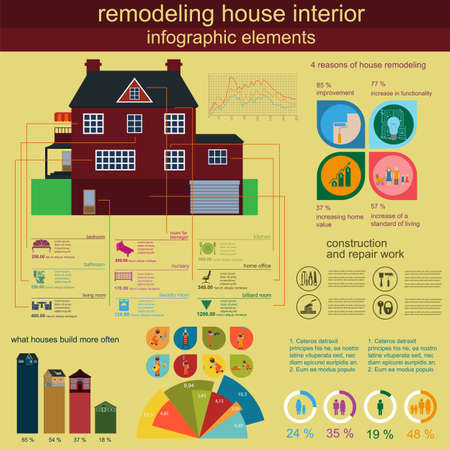Understanding Allowable Expenses
If you’re a landlord in the UK, navigating the maze of tax regulations is a crucial part of managing your property business. Knowing what counts as allowable expenses can significantly reduce your annual tax bill, helping you maximise your rental returns. HMRC provides clear guidelines on expenses that can be offset against rental income, but understanding the details ensures you claim everything you’re entitled to.
What Qualifies as Allowable Expenses?
Allowable expenses are the costs you incur wholly and exclusively for the purpose of renting out your property. These are typically split into two main categories: day-to-day running costs and essential repairs. It’s important to differentiate between capital expenditure (which improves the property’s value) and revenue expenditure (which keeps the property in good working order). Only revenue expenses are generally deductible.
Common Examples of Allowable Expenses
| Expense Type | Description |
|---|---|
| General Maintenance & Repairs | Fixing leaks, painting, replacing broken windows (not improvements) |
| Letting Agent Fees | Charges for managing or letting the property |
| Insurance | Landlord insurance policies such as buildings, contents, or public liability |
| Council Tax & Utility Bills | If you pay these on behalf of your tenants |
| Accountant Fees | Professional fees for managing your rental accounts |
| Ground Rent & Service Charges | Applicable to leasehold properties |
Aesthetic Consideration in Repairs vs Improvements
Remember, routine repairs maintain the existing design and function of your space—think restoring original cornices or repairing sash windows—whereas adding a conservatory or loft conversion would be considered an improvement and not immediately deductible.
By meticulously documenting all allowable expenses throughout the year, you’ll not only enhance your property’s appeal but also ensure your tax affairs remain compliant and optimised for savings.
2. Common Types of Deductible Costs
Understanding which costs are deductible is essential for UK landlords seeking to reduce their tax bill efficiently. HMRC allows landlords to claim a range of expenses that are wholly and exclusively incurred in the course of letting their property. Here’s a breakdown of the most common deductible expenses you can claim as a landlord in the UK:
Letting Agent Fees
If you employ a letting agent to manage your property, their fees are fully allowable as a deduction. This includes tenant finding fees, ongoing management charges, and even renewal fees.
Landlord Insurance
Premiums paid for specialist landlord insurance policies—covering buildings, contents, or rent guarantee—can be deducted from your rental income. Ordinary home insurance cannot be claimed if you let out the property.
Utility Bills and Council Tax
If you pay for utilities such as gas, electricity, water, or council tax on behalf of your tenants, these costs are also deductible. However, if tenants pay these directly, you cannot claim them as expenses.
Typical Allowable Expenses Table
| Expense Type | Description |
|---|---|
| Letting Agent Fees | Management, tenant finding & renewal fees |
| Landlord Insurance | Buildings, contents & rent protection insurance |
| Utility Bills | Gas, electricity & water paid by landlord |
| Council Tax | Council tax paid on behalf of tenants |
Other Deductible Costs to Consider
Apart from the core expenses above, landlords may also claim for maintenance and repairs (excluding improvements), service charges, ground rents, accountant’s fees related to rental accounts, and direct costs such as phone calls or advertising for new tenants. Keeping detailed records and receipts is crucial for substantiating all claims should HMRC request evidence.

3. Capital vs. Revenue Expenditure
Understanding the distinction between capital and revenue expenditure is vital for UK landlords aiming to reduce their tax bill legitimately. HMRC draws a clear line between what constitutes an improvement to your property (capital expenditure) and what counts as routine maintenance or repair (revenue expenditure). Only revenue expenses are generally allowable as deductions against your rental income in the year they are incurred, while capital expenditures may only be offset against Capital Gains Tax when you sell the property.
Routine Maintenance vs. Improvements
Routine maintenance—such as repainting, repairing broken windows, or fixing a leaking roof—ensures your property remains in a good state of repair for letting purposes. These costs can usually be deducted from your rental income for tax purposes in the same tax year they are incurred. However, if you carry out work that improves the property beyond its original condition—for example, adding a new conservatory or converting a loft into an additional bedroom—these are considered capital improvements and cannot be claimed as immediate expenses.
What You Can and Cannot Claim
| Type of Expense | Examples | Tax Deductible? |
|---|---|---|
| Revenue Expenditure (Routine Maintenance) | Painting, replacing broken tiles, fixing gutters, general repairs | Yes – deductible against rental income |
| Capital Expenditure (Improvements) | Adding double glazing, building an extension, fitting a new kitchen where none existed before | No – only claimable against Capital Gains Tax on sale |
A Design-Inspired Tip
If youre planning upgrades, consider whether the works enhance the propertys value or simply restore it to its previous standard. For instance, replacing worn-out carpets with similar quality is revenue expenditure, but installing hardwood floors where there was previously carpet is a capital improvement. Document each project thoroughly and keep all receipts to ensure you can justify your claims if HMRC asks for evidence.
4. Claiming Mortgage Interest and Loan Expenses
Understanding how mortgage interest and other financial costs are treated for tax purposes is vital for UK landlords aiming to reduce their tax bill. In recent years, the rules surrounding tax relief on finance costs have undergone significant changes, fundamentally altering how landlords can claim these expenses.
Mortgage Interest Relief: The Current Landscape
Previously, landlords could deduct all of their mortgage interest from their rental income before calculating their taxable profit. However, since April 2020, this system has been replaced with a new regime known as the basic rate tax reduction. Instead of deducting mortgage interest as an expense, landlords now receive a tax credit equal to 20% of their mortgage interest payments. This change particularly impacts higher and additional rate taxpayers, as they can no longer claim relief at 40% or 45%.
How Mortgage Interest Tax Relief Works Now
| Tax Year | Deductible Mortgage Interest | Tax Credit (%) |
|---|---|---|
| Before April 2017 | 100% | N/A (full deduction) |
| April 2017 – April 2020 (phased in) | Reducing yearly | Increasing yearly |
| From April 2020 onwards | 0% | 20% of finance costs |
This shift means you may find your taxable rental profits are higher than before, potentially pushing you into a higher tax bracket.
Other Allowable Loan Expenses
Alongside mortgage interest, certain other loan-related costs remain allowable. These include arrangement fees for securing a loan and early repayment charges. Such costs can be claimed as allowable expenses but should be spread over the life of the mortgage or loan if they relate to borrowing over more than one year.
Best Practice for Landlords
The evolving nature of property finance cost relief means it’s crucial to keep detailed records and seek professional advice when needed. If you jointly own property or have complex financing arrangements, consulting with an accountant experienced in UK landlord taxation is strongly advised.
By understanding these recent changes and meticulously claiming your eligible finance costs, you can ensure your property investment remains financially sustainable within the current UK tax framework.
5. Record Keeping and HMRC Compliance
Maintaining impeccable records is essential for UK landlords aiming to reduce their tax bill while remaining compliant with HM Revenue & Customs (HMRC) regulations. Accurate documentation ensures that every allowable expense and deduction can be confidently claimed, minimising the risk of disputes or penalties during an audit. Below are some best practices for record keeping and submitting your tax returns:
Best Practices for Documenting Expenses
- Keep All Receipts and Invoices: For each expense claimed—such as repairs, letting agent fees, or insurance—retain original receipts or digital copies.
- Use Digital Tools: Consider accounting software approved by HMRC’s Making Tax Digital initiative to organise transactions and generate real-time reports.
- Separate Business and Personal Finances: Maintain a dedicated bank account for rental income and outgoings to simplify tracking.
Ensuring Your Accounts Stand Up to HMRC Scrutiny
- Accurate Categorisation: Clearly distinguish between revenue expenses (e.g., repairs) and capital expenses (e.g., improvements), as only certain costs are immediately deductible.
- Date Every Transaction: Ensure all records show the date, amount, payee, and reason for the expense.
- Retain Records for at Least 5 Years: HMRC requires landlords to keep supporting documents for five years after the relevant tax year ends.
Sample Record Keeping Table
| Date | Description | Amount (£) | Category | Receipt/Invoice No. |
|---|---|---|---|---|
| 01/02/2024 | Boiler repair | 180 | Maintenance | #INV-2024-11 |
| 15/03/2024 | Letting agent fees | 350 | Professional Services | #AGF-3321 |
Submitting Your Tax Returns
- Self Assessment Deadlines: File your Self Assessment tax return by 31st January (online) following the end of the tax year on 5th April.
- Declare All Income and Deductions: Report gross rental income and itemise allowable expenses clearly within the property section of your return.
- Double-Check Figures: Cross-reference your records with your bank statements before submission to avoid errors or omissions.
Aesthetic Tip: Keep Your Records Organised!
An orderly filing system—whether digital or physical—not only keeps you in HMRC’s good books but also brings a sense of calm and control to your business operations, much like a beautifully designed space brings clarity and inspiration to your daily life.
6. Special Allowances and Reliefs
When it comes to reducing your tax bill as a UK landlord, it pays to look beyond the standard deductions. The government offers several niche schemes and allowances tailored for specific situations. Understanding and utilising these can lead to significant savings on your annual self-assessment return.
Rent a Room Scheme
If you let furnished accommodation in your own home, the Rent a Room scheme could be particularly advantageous. Under this initiative, you can earn up to £7,500 per year tax-free from letting out a furnished room in your main residence. This is a straightforward way to generate extra income without the burden of additional tax paperwork, provided you remain within the threshold.
Key Features of the Rent a Room Scheme
| Eligibility | Maximum Tax-Free Allowance (2024/25) | Main Conditions |
|---|---|---|
| Letting furnished accommodation in your only or main home | £7,500 per year (£3,750 if shared income) | Property must be your main residence; applies to both homeowners and tenants |
Wear and Tear Allowance (Historical Reference)
The wear and tear allowance allowed landlords of furnished residential property to claim 10% of net rent as a notional deduction for depreciation and replacement of furnishings. However, it was replaced in April 2016 by the Replacement of Domestic Items Relief. Now, you can only claim the actual cost of replacing furnishings, appliances, and kitchenware—so keep those receipts handy.
Replacement of Domestic Items Relief vs. Wear and Tear Allowance
| Allowance | Status | What Can Be Claimed? |
|---|---|---|
| Wear and Tear Allowance | Abolished (pre-April 2016) | 10% of net rent (no longer available) |
| Replacement of Domestic Items Relief | Active (post-April 2016) | The actual cost of replacing old items with new equivalents (excluding improvements) |
Niche Deductions Worth Exploring
Certain scenarios may open up even more tailored reliefs. For example, if you have incurred losses in previous tax years, you may be able to offset these against future profits. Similarly, landlords who qualify as resident landlords (living in part of the property) may benefit from simplified expenses rules. Consulting with a local accountant who understands UK property taxation is always wise—especially when navigating these less common but highly beneficial schemes.
Your Next Steps
Diving into special allowances and reliefs is essential for maximising your rental profits while staying compliant with HMRC regulations. With a blend of careful record-keeping, an eye for detail, and an understanding of local tax rules, you’ll ensure your lettings business remains both stylish and financially sound.


